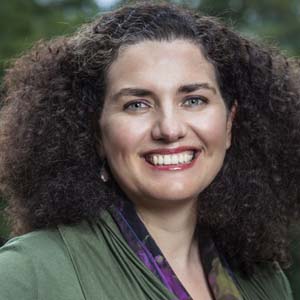 “Please fill out these forms, so they will be ready for your health assessment,” says the woman behind the check in desk, a representative of Member Services.
“Please fill out these forms, so they will be ready for your health assessment,” says the woman behind the check in desk, a representative of Member Services.
I’ve been thinking about joining this certain wellness center located in close proximity to my small NH town for quite some time now. My apprehension in joining was two-fold; first, I was concerned that I wouldn’t use my gym membership to its fullest, and second I confess, I have felt like an imposter in athletic settings for most of my life, and was concerned that others would notice my bluff.
Once I was handed the health assessment questionnaire, I was to check yes or no if I experienced any of the issues below:
· Heart Disease
· Cerebrovascular Disease/Stroke
· Peripheral Artery Disease (PAD)
· Diabetes
· Renal Disease
· Chest pains
· Unreasonable breathlessness
· Dizziness
· Cramps or burning in lower legs
· Ankle swelling
I answer a clear no to all these conditions, although I do become unreasonably breathless at the sight of beautiful sunsets, but I don’t think that counts.
Next, the risk factors. I am to check yes or no.
· You are a man over 45.
· You are a woman over 55, have had a hysterectomy or are postmenopausal.
· You have a close relative who had a heart attack or heart surgery before age 55 (male) or 65 (female).
· You smoke.
· You have been diagnosed with abnormal cholesterol.
· You have been diagnosed with high blood pressure.
· You have been diagnosed with sleep apnea.
Again, all no. I am healthy and my risk factors are low! This is great!
There is only one box on this form I can answer yes to:
“YOU ARE MORE THAN 20 POUNDS OVERWEIGHT.”
Overall, I present a decent picture of health, yet, I can’t help but feel slightly bad about myself as I hand the completed form back to Member Services to file.
I am overweight. I am healthy, but I am overweight.
The professional who does my physical assessment tests my endurance on the exercise bike (with good results), my body composition (higher than average fat percentage), my flexibility (it’s very clear yoga hasn’t been done in a while) and my BMI (not a particularly useful number). She congratulates me on my overall health and tells me she looks forward to working on changing some of the numbers.
I was frustrated at her attention to “changing some of the numbers.” I had hoped that she would focus her attention on the goals that I had for MYSELF, which didn’t necessarily include changing the number on the scale, or my BMI. Here’s what I ACTUALLY am hoping to get out of my membership at the wellness club.
1. I want to make moving my body a more consistent practice.
2. I want to connect with people
3. I want to enjoy showing up for physical activity.
4. I want to spend time relaxing in the sauna and steam room this winter.
I will reap the benefits of movement, which may or may not include weight loss, but it is certainly not THE goal.
For some people, weight loss will make the illnesses and challenges they have more manageable, but this isn’t my story. I have similar struggles to most regarding weight and shape. Being an educator in the field of eating and mental health disorders does not immunize me from those thoughts and feelings. What I do know however, is that weight loss isn’t always the answer to healthy minds and bodies. From this assessment, I learned that my “more than 20 pounds overweight” has not determined my overall health.
Whether or not this particular health professional approved of the number that appeared when I stepped on the scale, I now feel energized to move my body freely with joy and with gratitude!
What You Can Do: Assess your general health-how are you doing? As you take care of your body, be sure to give equal time and effort to taking care of your mind. You can use whatever inspires your spirit to motivate how you take care of yourself.
What You Can Do Today: Acknowledge and validate what’s healthy in you. Perhaps there are some things about yourself that you don’t appreciate as much as you’d like to, but remember all the amazing things that your body is doing for you behind the scenes. Your heart is pumping, your blood is flowing and lungs are breathing. There is more to health than the size of your jeans. To get some perspective, refresh yourself on the research behind the “Health At Every Size” approach.
####
 Stephanie Haines, M.Ed., CHES, is the prevention education specialist at Walden Center for Education and Research. Her role is to provide prevention education to school communities including students, teachers and administrators regarding eating disorders like anorexia, bulimia and binge-eating disorder, body image and related topics. Before joining Walden, Stephanie was a senior health educator and prevention specialist at the nonprofit organization Freedom from Chemical Dependency (FCD) Educational Services in Newton, where she provided education to students in 50 countries about the prevention of alcohol, tobacco and drug abuse. Earlier in her career, she was a licensed occupational therapist in the Newport, N.H., school district. Stephanie earned her master’s degree from Plymouth State University in New Hampshire, where she served as a graduate assistant to Margaret Burckes-Miller, founder and director of the university’s Eating Disorders Institute. She earned her bachelor’s degree from Granite State College and an associate’s degree from New Hampshire Technical College.
Stephanie Haines, M.Ed., CHES, is the prevention education specialist at Walden Center for Education and Research. Her role is to provide prevention education to school communities including students, teachers and administrators regarding eating disorders like anorexia, bulimia and binge-eating disorder, body image and related topics. Before joining Walden, Stephanie was a senior health educator and prevention specialist at the nonprofit organization Freedom from Chemical Dependency (FCD) Educational Services in Newton, where she provided education to students in 50 countries about the prevention of alcohol, tobacco and drug abuse. Earlier in her career, she was a licensed occupational therapist in the Newport, N.H., school district. Stephanie earned her master’s degree from Plymouth State University in New Hampshire, where she served as a graduate assistant to Margaret Burckes-Miller, founder and director of the university’s Eating Disorders Institute. She earned her bachelor’s degree from Granite State College and an associate’s degree from New Hampshire Technical College.
*This blog post does not necessarily represent the views of Walden Behavioral Care and its management. The Walden Blog is meant to represent a broad variety of opinions relating to eating disorders and their treatment. Comments are welcome, but respect for the opinions of others is encouraged.






